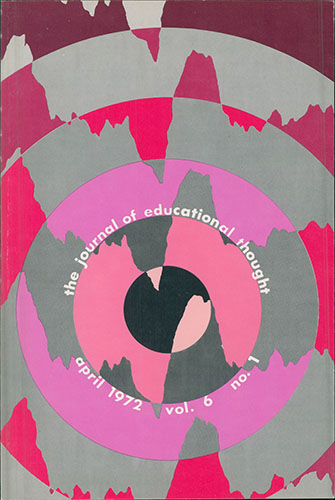The Role of the Disciplines in Cardinal Newman's Theory of a Liberal Education
DOI:
https://doi.org/10.11575/jet.v6i1.43586Abstract
For over a century Cardinal Newman's contribution to the idea of a liberal education has received widespread attention. His basic position, that a liberal education conslsts in a well-informed judgment combined with an ability to perform the different logical operations involved in reasoning well, has frequently been criticized on the grounds that it failed to cater to religious and moral training. However, this is not an altogether legitimate criticism. Newman never intended his liberal education to be the only education the university student would receive. It was to form just a part, albeit an extremely important part, of a university undergraduate education-1 Nevertheless, while a substantial portion of the literature on Newman's educational thought is devoted to discussion of this issue, when in fact no real problem exists here, other and more genuine difficulties have been overlooked. Accordingly, it is not my intention to further the already protracted debate concerning the appropriateness of a liberal education as understood by Newman at the university level. It is on one of the real problem areas, specifically on Newman's idea of the possibility of scientific knowledge and its implications for the curriculum of a liberal education, that I wish to focus attention.
Downloads
Published
Issue
Section
License
The Journal of Educational Thought retains first publication rights for all articles. The Journal grants reproduction rights for noncommercial educational purposes with the provision that full acknowledgement of the work’s source be noted on each copy. The Journal will redirect to the appropriate authors any inquiries for further commercial publication of individual articles. All authors wishing to publish in JET will be asked to fill in and sign a Consent to Publish and Transfer of Copyright agreement.
Authors must affirm that any submission to JET has not been and will not be published or submitted elsewhere while under considration by JET.

